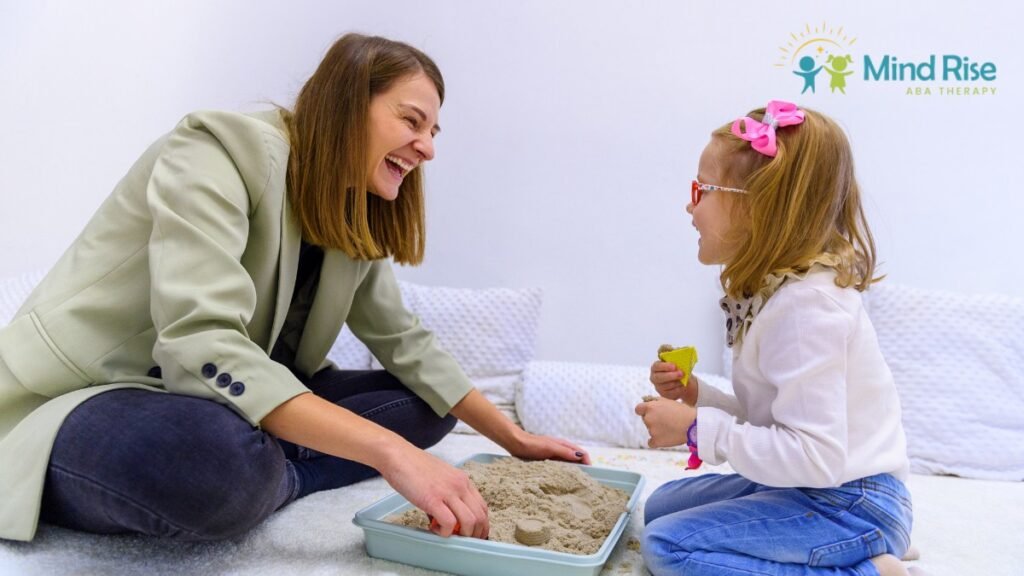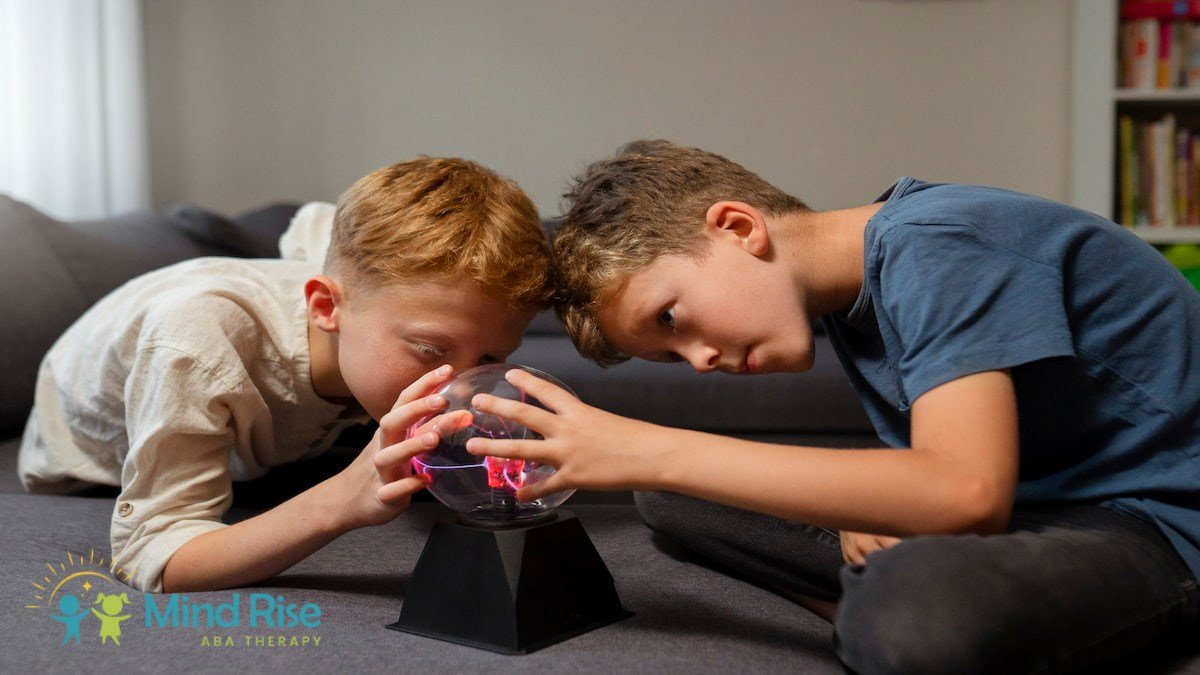Key Points:
- Asking the right questions helps you evaluate if an ABA provider is a good fit for your child and family.
- Important topics include credentials, treatment customization, parent involvement, and communication practices.
- Choosing an ABA therapy provider in Virginia like Mind Rise ABA means partnering with a team committed to transparency and support.
Choosing the right ABA therapy provider in Virginia is a decision that can significantly impact your child’s progress and your family’s quality of life. With so many providers out there, how do you know which one will genuinely meet your child’s needs?
Whether you’re just starting your search or narrowing down options, asking the right questions can reveal more than any brochure or website ever will. ABA therapy providers in Virginia, like Mind Rise ABA, understand that families want clarity, trust, and results—and that starts with a meaningful conversation.
Below, we’ve broken down the most essential questions to ask before signing on with any provider, and more importantly, why these questions matter.

1. What Are the Credentials of Your Clinical Team?
Before you get into schedules and session logistics, start with the basics: qualifications. Credentials tell you a lot about the provider’s standards and how seriously they take professional development.
Ask about:
- BCBA certification: Is the supervising clinician board-certified? A Board Certified Behavior Analyst (BCBA) should oversee all treatment plans and supervise the therapy team.
- RBT training and supervision: Are the therapists working with your child Registered Behavior Technicians (RBTs)? If not, what kind of training and oversight do they receive?
- Supervision frequency: How often does the BCBA observe sessions and adjust the treatment plan?
At Mind Rise ABA, all programs are supervised by experienced BCBAs and implemented by trained RBTs who receive ongoing feedback and training.
2. How Is the Treatment Plan Developed?
A quality ABA program should never be “one-size-fits-all.” Your child’s therapy should be rooted in a detailed assessment and tailored to their developmental level, learning style, and goals.
Here’s what to ask:
- What assessments do you use before creating the plan? Look for providers who use standardized tools and direct observation.
- How are goals chosen? They should involve your input, reflect your child’s needs, and be measurable.
- How often are treatment plans updated? A good provider will revisit goals regularly based on progress data.
Knowing the answers to these helps ensure that your child’s plan is designed with you, not for you.
3. What’s Your Approach to Parent Involvement?

Your role in ABA therapy matters. Providers should include you in every part of the process—from goal setting to learning how to apply strategies at home.
Key questions to ask:
- Do you offer parent training? You want a provider who not only welcomes your involvement but actively teaches you how to support your child’s progress.
- How often will we meet to review progress? Scheduled family meetings help keep you in the loop and provide space to raise concerns.
- Can you support generalization to home and community settings? Skills should transfer beyond the therapy room.
At Mind Rise ABA, we work closely with families because consistent reinforcement outside of sessions accelerates meaningful progress.
4. What Settings Do You Offer Therapy In?
ABA therapy in Virginia is available in various formats—home-based, center-based, school-based, or a combination. What works best depends on your child’s needs, your schedule, and your goals.
Consider asking:
- Do you provide in-home services? For many children, therapy is most effective in their natural environment.
- Is there a waitlist for center-based services? If you prefer a clinic, make sure to ask about availability.
- Do you offer hybrid models? Flexibility can be a plus, especially if needs change over time.
Mind Rise ABA offers in-home ABA therapy in Virginia to support real-life learning in familiar settings.
5. How Do You Measure Progress?
Tracking progress is essential—not just for clinical reasons, but so you can see the real impact of therapy. Every goal should be tied to observable behaviors and updated as your child grows.
Here’s what to dig into:
- What data do you collect and how often? Data-driven therapy means decisions are based on clear evidence, not assumptions.
- How will that data be shared with me? You should get regular updates in an easy-to-understand format.
- What happens if progress stalls? A good provider will adjust strategies quickly and transparently.
Without consistent tracking, it’s hard to know whether therapy is actually making a difference.
6. How Do You Handle Challenging Behaviors?
ABA often addresses behaviors that interfere with learning or daily life. Understanding a provider’s philosophy and process can give you peace of mind.
Questions to explore:
- What methods do you use to reduce problem behaviors? Look for providers who prioritize positive reinforcement and function-based strategies.
- Do you involve the family when developing behavior intervention plans? You should feel heard and supported—not sidelined.
- Are your approaches trauma-informed or sensitive to individual needs? Every child is different. Approaches should be respectful and ethical.
We focus on compassionate, evidence-based behavior support that balances structure with respect for your child’s dignity.
7. What’s Your Team Availability and Scheduling Like?
Consistency is a major factor in ABA success. Gaps in service or frequent therapist turnover can slow progress and increase frustration.
You’ll want to ask:
- How soon can services begin? Ask about start dates and how long the intake process typically takes.
- How many hours per week will you recommend? Some children benefit from 10 hours; others may need 25+. Make sure this aligns with your availability.
- How do you handle therapist absences or changes? Sudden disruptions can be tough—good providers have systems to manage this.
At Mind Rise ABA, we aim to match families with stable, consistent therapists and provide flexible scheduling to meet your needs.
8. What Does Communication Look Like?
No one wants to be left in the dark. Transparent, consistent communication builds trust and helps you stay involved in your child’s therapy journey.
Be sure to ask:
- How often will I hear from the BCBA? You should expect check-ins, progress updates, and access when concerns arise.
- Do you use an online portal or platform? Many providers use software that allows families to track progress and communicate easily.
- Will I get session notes or summaries? This gives you insight into what’s happening during therapy and how to reinforce it at home.
We prioritize open communication because ABA should always feel like a collaborative process—not a clinical transaction.
9. What’s Your Experience With My Child’s Needs?
Not all providers have experience with every type of learner. While many specialize in autism spectrum disorders, some also work with speech delays, ADHD, or behavioral challenges.
To clarify fit:
- Have you worked with children similar to mine (age, diagnosis, or goals)? Experience matters—especially for complex needs.
- Can you support transitions to school or IEP coordination? If your child has an IEP, the provider should be comfortable collaborating with your school team.
- Do you serve both verbal and non-verbal children? Approaches should be flexible depending on communication level.
Our team at Mind Rise ABA works with children across a wide spectrum of developmental needs and builds programs that grow with them.
10. What Do Families Say About Working With You?

Sometimes, what matters most is hearing from families who’ve been there. Beyond professionalism and care quality, reviews can reveal whether a provider helps caregivers make informed decisions, understand their rights, and feel empowered throughout the process.
Ask for:
- References or reviews from other families.
- Example success stories (with identities protected, of course).
- Transparency about feedback or complaints processes.
If a provider is reluctant to connect you with others or glosses over issues, that’s worth noting.
Final Thoughts
Choosing an ABA therapy provider in Virginia is a deeply personal and often overwhelming process—but asking the right questions can bring clarity and confidence. From credentials and customization to parent training and communication, the goal is to find a provider who sees your child as a whole person and treats you as an active partner.
At Mind Rise ABA, we believe the therapy relationship should feel like a collaboration from day one. Our in-home ABA therapy services in Virginia are designed to be transparent, family-focused, and progress-oriented. We’re here to walk with you—not ahead of you—as you navigate your child’s growth journey.
Get in touch today to learn more about how our ABA therapy in Virginia can support your family with clarity, consistency, and compassion.


